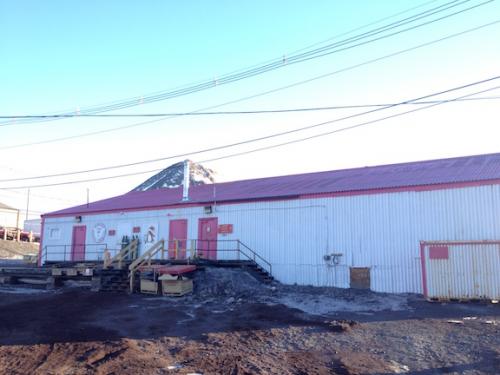
McMurdo Station is the logistics hub for the entire United States Antarctic Program, which means it sees dozens of newly arriving faces - and their germs - every day. The station population currently hovers around 900 people; as space gets tight, the viruses and microorganisms that call the human body home are much more likely to find suitable hosts as they're passed through the air, on surfaces, and in droplet form. The common cold, which is actually any number of viruses that bring about symptoms in the upper respiratory tract, has a special name when it strikes McMurdo: The Crud.

One of my first impressions of McMurdo was that this place takes hand washing seriously. The dining hall's central importance on station means it's a prime location for pathogen transmission. The "galley's" doors display numerous signs directing, pleading, humoring, and even shaming would-be diners into washing their hands (as well as following other hygiene requirements) prior to entering the food line. USAP(abbreviation) United States Antarctic Program has even installed "bird baths," which are industrial hand washing stations, just prior to the galley entrance. It turns out that thoroughly washing hands, not touching your face, and not licking your fingers while you're in the food line are very effective means of limiting the spread of the Crud. However, even when these precautions are strictly followed, sometimes it still gets through.

Despite the extensive physical qualification process that all USAP(abbreviation) United States Antarctic Program participants must undergo prior to deploying to the Ice, the Crud finds new life whenever it is introduced into a new population. With over 200 strains of constantly-changing virus implicated, the Crud is impossible to vaccinate against (unlike measles and influenza, against which we receive vaccines prior to deployment). When it somehow circumvents all the soaps and disinfectants, our last line of defense are our healthy immune systems. The immune response often leads to symptoms such as runny nose, sore throat, sinus congestion, coughing, and headaches, all of which clear up in about a week. If symptoms worsen, McMurdo Station has a medical clinic staffed by doctors, physicians assistants, and nurses who will help find treatment alternatives. A low-level case of the Crud is where I found myself much of last week - holed up in my dorm room, waiting out the symptoms, staying away from concentrations of other people (even going so far as to have dining hall food delivered). Luckily, my case hasn't been very severe and with plenty of rest and fluids, I should be back up to full strength in no time.



Comments